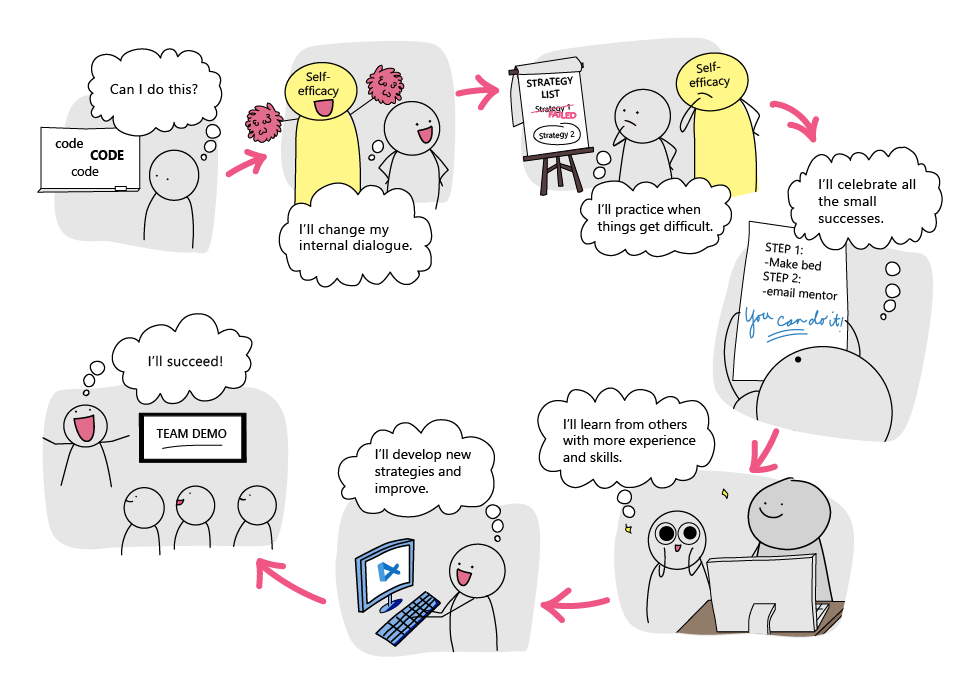Reflect on strategies to improve your self-efficacy in technology
You now have an understanding of self-efficacy and the strategies you can use to improve it. You've made good progress with the presentation script with regular practice. As the competition nears, you want to reflect on your self-efficacy and identify areas you need to work on. In this unit, you'll reflect on the strategies you'll use to improve your self-efficacy when you're faced with a stressful situation in computer science.
Strategies to improve self-efficacy

Consider this scenario as you prepare for the coding competition. One of your teammates is having trouble overcoming their anxiety. They've studied the presentation script but haven't made much progress. The competition is next week, and the rest of the team is doing well and excited to meet the judges. When you're rehearsing with the team, your anxious teammate asks, "How about if I sit out the presentation? I'll give up my lines and take on some extra code. You'll probably do better at the presentation without me anyway. Public speaking isn't my thing."
Analyze the situation
After you review this situation, reflect on the following questions and note your answers:
- How can you help your teammate overcome their low self-efficacy?
- What kind of mindset is your teammate displaying?
- Does your teammate's self-efficacy reflect their self-confidence?
Here are some suggested answers to the preceding questions:
- How can you help your teammate overcome their low self-efficacy?
Your teammate is probably comparing themselves to the rest of the team in an unfavorable light. Remind them that each team member has different levels of experience with public speaking. Though you were all anxious when the presentation was announced, you've used the strategies you learned in this module to work on your self-efficacy.
Provide your teammate with the positive reinforcement they need. Work with them on their self-talk. Create a schedule that allows the rest of the team to spend extra time with your teammate to practice their lines with them. Work with your guide to provide positive feedback and tips for improvement.
- What kind of mindset is your teammate displaying?
Your teammate is displaying signs of a fixed mindset. They're unsure of their abilities and are fearful of negative feedback and possible embarrassment on stage. You can help your teammate move toward a growth mindset by reminding them that the entire team is slowly getting better with regular practice.
Draw on your guide's experiences with public speaking and ask them to provide strategies your teammate can use. Remind your teammate to use the team's feedback in a positive manner. Work with them to create a list of small tasks. For example, they can try to memorize five lines every day. As they learn those lines, celebrate with your teammate. Then help them progress toward learning their part of the presentation.
- Does your teammate's self-efficacy reflect their self-confidence?
No. Your teammate could be a confident person who's advanced in other areas, such as coding, debugging, sports, or art. They could even be comfortable presenting their thoughts to their friends or a group of familiar people. In this instance, their low self-efficacy relates to their fear of presenting before an unknown group of people who will decide the team's fate at the coding competition.
Remind your teammate that with practice and mutual help, the team can put forth their best effort and try to win the coding competition.